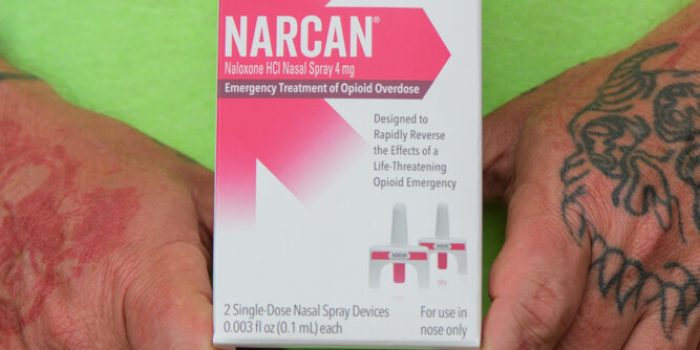Trump Administration Highlights: Government Deports 2-Year-Old U.S. Citizen to Honduras
Published April 25, 2025Updated April 26, 2025, 1:32 a.m. ET

Where Things Stand
-
Deported U.S. citizen: A federal judge in Louisiana expressed concern that the Trump administration had deported a 2-year-old U.S. citizen to Honduras “with no meaningful process” and against the wishes of her father. Read more ›
-
International students: The Trump administration on Friday abruptly moved to restore thousands of international students’ ability to study in the United States legally, but immigration officials insisted they would still try to terminate that legal status despite a wave of legal challenges. Read more ›
-
F.B.I. arrests judge: F.B.I. agents arrested a county judge in Milwaukee and charged her with helping an immigrant evade federal authorities. A spokesman for the U.S. Marshals confirmed that the judge, Hannah Dugan, had been arrested — a major escalation of the Trump administration’s fight with local officials over deportations. She was released after a brief appearance in a nearby federal court on Friday. Read more ›
A 2-year-old U.S. citizen was deported ‘with no meaningful process,’ a judge suspects.
A federal judge in Louisiana expressed concern on Friday that the Trump administration had deported a 2-year-old U.S. citizen to Honduras “with no meaningful process” and against the wishes of her father.
In a brief order issued from Federal District Court in the Western District of Louisiana, Judge Terry A. Doughty questioned why the administration had sent the child — known in court papers only as V.M.L. — to Honduras with her mother even though her father had sought in an emergency petition on Thursday to stop the girl from being sent abroad.
Advertisement
Nineteen states sue the Trump administration over its D.E.I. demands in schools.
A coalition of 19 states sued the Trump administration on Friday over its threat to withhold federal funding from states and districts with certain diversity programs in their public schools.
The lawsuit was filed in federal court by the attorneys general in California, New York, Illinois, Minnesota and other Democratic-leaning states, who argue that the Trump administration’s demand is illegal.
Eileen Sullivan covers changes to the federal work force under President Trump. She reported from Washington.
Trump officials weaken rules insulating government workers from politics.
The Trump administration moved on Friday to weaken federal prohibitions on government employees showing support for President Trump while at work, embracing the notion that they should be allowed to wear campaign paraphernalia and removing an independent review board’s role in policing violations.
The Office of Special Counsel, an agency involved in enforcing the restrictions, announced the changes to the interpretation of the Hatch Act, a Depression-era law devised to ensure that the federal work force operates free of political influence or coercion. The revisions, a resurrection of rules that Mr. Trump rolled out at the end of his first term but that President Joseph R. Biden Jr. repealed, could allow for the startling sight of government officials sporting Trump-Vance buttons or “Make America Great Again” hats.
Advertisement
The Trump administration opens a civil rights inquiry into a Long Island mascot fight.
Federal education officials said on Friday that they had opened a civil rights inquiry into whether New York State could withhold state money from a Long Island school district that has refused to follow a state requirement and drop its Native American mascot.
The announcement came shortly after President Trump expressed his support for the district, in Massapequa, N.Y., in its fight against complying with a state Board of Regents requirement that all districts abandon mascots that appropriate Native American culture or risk losing state funding.
![]()
April 25, 2025, 9:07 p.m. ET
Tim Balk
A federal judge in Louisiana said he suspected the Trump administration had deported a 2-year-old U.S. citizen to Honduras earlier Friday despite a lawsuit intended to block the child’s removal. The judge, Terry A. Doughty, scheduled a hearing for May 16 to address his “strong suspicion that the Government just deported a U.S. citizen with no meaningful process.” The government contended the child’s mother, an unauthorized immigrant, wanted the child to be deported with her, Doughty wrote. “But,” he added, “the Court doesn’t know that.”
Kenneth P. Vogel and Andrew Duehren
Reporting from Washington
Trump pardons executive whose family sought to publicize Ashley Biden’s diary.
President Trump has pardoned a Florida health care executive whose mother played a role in trying to expose the contents of Ashley Biden’s diary.
The pardon of the executive, Paul Walczak, was signed privately on Wednesday and posted on the Justice Department’s website on Friday. It came less than two weeks after he was sentenced to 18 months in prison and ordered to pay nearly $4.4 million in restitution, for tax crimes that prosecutors said were used to finance a lavish lifestyle, including the purchase of a yacht.
Advertisement
Reporting from Washington
Judge blocks Trump order ending union protections for federal workers.
A federal judge in Washington blocked President Trump from ending collective bargaining with unions representing federal workers, stymying a component of Mr. Trump’s sweeping effort to strip civil servants of job protections and assert more control over the federal bureaucracy.
Judge Paul L. Friedman of the Federal District Court in Washington ruled in favor of the National Treasury Employees Union, which represents tens of thousands of federal workers across the government. Without including an opinion explaining his decision, Judge Friedman ruled that the executive order from Mr. Trump was unlawful, and he granted a temporary injunction blocking its implementation while the case proceeded.
![]()
April 25, 2025, 6:11 p.m. ET
Isabela Espadas Barros Leal
President Trump said in a social media post that Russia and Ukraine were “very close to a deal” after a day of discussions about bringing the war to an end. “Most of the major points are agreed to,” he wrote on Truth Social after landing in Rome for Pope Francis’ funeral. Trump encouraged both sides to “finish it off,” adding, “We will be wherever is necessary to help facilitate the END to this cruel and senseless war!”
Devlin Barrett and Glenn Thrush
Reporting from Washington
Trump administration says it can once again seek reporters’ phone records, and compel their testimony.
Attorney General Pam Bondi on Friday said that federal authorities may once again seek reporters’ phone records and compel their testimony in leak investigations, reversing a Biden administration policy meant to protect journalism from intrusive efforts to identify and prosecute leakers.
An internal Justice Department memo from Ms. Bondi said that the change was necessary to safeguard “classified, privileged and other sensitive information” — a far broader set of government secrets than is protected by the criminal code, which focuses primarily on making it illegal to share classified information.
Advertisement
Reporting from Washington
A federal judge in Washington blocked President Trump from ending collective bargaining with unions representing federal workers, which was part of his widespread effort to strip civil servants of work protections and assert more control over the federal bureaucracy.
Without including an opinion explaining his decision, Judge Paul L. Friedman of the Federal District Court in Washington ruled in favor of unions who had sued to block the order, granting a temporary injunction while the case proceeds.
![]()
April 25, 2025, 4:39 p.m. ET
Karoun DemirjianGreg Kendall-Ball and Edward Wong
Reporting from Washington
Federal workers fired from U.S.A.I.D. will not need to return their government phones and computers.
Staff members being fired from the federal agency responsible for distributing foreign aid will be able to keep their government-issued electronic devices when it closes its doors this summer, according to an internal email, copies of which were shared with The New York Times.
In the email, sent to employees of the U.S. Agency for International Development, Trump administration officials said that iPhones, iPads and laptops would “be remotely wiped and marked as disposed.” The directive, the email stated, was adopted “to simplify processes and to reduce burden” of terminating the thousands of direct hires and consultants who worked for the agency before it was slated to be closed this summer, its remaining functions to be folded into the State Department.
In response to the arrest of a sitting county judge on Friday in Milwaukee, Gov. Tony Evers of Wisconsin said that the Trump administration is attempting to undermine the judiciary “at every level.” “I will continue to put my faith in our justice system as this situation plays out in the court of law,” said Evers, a Democrat.
Advertisement
The S&P 500 rose 4.6 percent this week, as Wall Street grasped for any signs of easing trade tensions. It was a week marked by dramatic swings: Monday saw a sharp sell-off fueled by Trump’s renewed attacks on Jerome H. Powell, the chair of the Federal Reserve, followed by four days of sizable gains.
Congressional reporter
During a news conference in Denmark, Representative Hakeem Jeffries, Democrat of New York and the House minority leader, was asked if he would “stand in Trump’s way” if the president took action to claim Greenland. “It’s not my expectation that he will unilaterally and aggressively move on Greenland,” Jeffries told reporters, adding that he did not believe Republicans in Congress would back such a move by the president.
Congressional reporter
Senator Chuck Grassley, Republican of Iowa, called on President Trump to place the “toughest of sanctions on Putin,” writing in a social media post that he had seen “enough killing of innocent Ukrainian” women and children, and adding that President Vladimir V. Putin of Russia was “playing America as a patsy.”
Hannah Dugan has spent most of her legal career working to help low-income people and marginalized groups.
The Wisconsin judge who was arrested on Friday morning on charges of obstructing immigration enforcement spent most of her legal career working on behalf of low-income people and marginalized groups.
Federal authorities arrested the judge, Hannah C. Dugan of the Milwaukee County Circuit Court, on suspicion that she “intentionally misdirected federal agents away from” an immigrant being pursued by federal authorities, Kash Patel, the F.B.I. director, wrote on social media. The authorities said that earlier this month, Judge Dugan directed an undocumented immigrant through a side door in her courtroom while the agents waited in a public hallway to apprehend him.
Advertisement
Global energy and climate policy reporter
China says Trump’s executive order on seabed mining ‘violates international law.’
China’s foreign ministry said on Friday that an executive order President Trump signed a day earlier to accelerate the permitting process for seabed mining in international waters “violates international law and harms the overall interests of the international community.”
The BBC earlier reported the remarks by a foreign ministry spokesman, Guo Jiakun. The Chinese Embassy in Washington did not respond immediately to a request for comment.
Jan Hoffman covers addiction.
Trump budget draft ends Narcan program and other addiction measures.
The opioid overdose reversal medication commercially known as Narcan saves hundreds of thousands of lives a year and is routinely praised by public health experts for contributing to the continuing drop in opioid-related deaths. But the Trump administration plans to terminate a $56 million annual grant program that distributes doses and trains emergency responders in communities across the country to administer them, according to a draft budget proposal.
In the document, which outlines details of the drastic reorganization and shrinking planned for the Department of Health and Human Services, the grant is among many addiction prevention and treatment programs to be zeroed out.
Neither the Department of Health and Human Services nor the White House’s drug policy office responded to requests for comment.
Although budget decisions are not finalized and could be adjusted, Dr. Glenn and others see the fact that the Trump administration has not even opened applications for new grants as another indication that the programs may be eliminated.
Other addiction-related grants on the chopping block include those offering treatment for pregnant and postpartum women; peer support programs typically run by people who are in recovery; a program called the “youth prevention and recovery initiative”; and programs that develop pain management protocols for emergency departments in lieu of opioids.
The federal health secretary, Robert F. Kennedy Jr., has long shown a passionate interest in addressing the drug crisis and has been outspoken about his own recovery from heroin addiction. The proposed elimination of addiction programs seems at odds with that goal. Last year, Mr. Kennedy’s presidential campaign produced a documentary that outlined federally supported pathways out of addiction.
The grants were awarded through the Substance Abuse and Mental Health Services Administration, an agency within the federal health department that would itself be eliminated under the draft budget proposal, though some of its programs would continue under a new entity, the Administration for a Healthy America.
In 2024, recipients of the naloxone grants, including cities, tribes and nonprofit groups, trained 66,000 police officers, fire fighters and emergency medical responders, and distributed over 282,500 naloxone kits, according to a spokesman for the substance abuse agency.
“Narcan has been kind of a godsend as far as opioid epidemics are concerned, and we certainly are in the middle of one now with fentanyl,” said Donald McNamara, who oversees naloxone procurement and training for the Los Angeles County Sheriff’s Department. “We need this funding source because it’s saving lives every day.”
Matthew Cushman, a fire department paramedic in Raytown, Mo., said that through the naloxone grant program, he had trained thousands of police officers, firefighters and emergency medical responders throughout Kansas City and western rural areas. The program provides trainees with pouches of naloxone to administer in the field plus “leave behind” kits with information about detox and treatment clinics.
In 2023, federal figures started to show that national opioid deaths were finally declining, progress that many public health experts attribute in some measure to wider availability of the drug, which the Food and Drug Administration approved for over-the-counter sales that year.
Tennessee reports that between 2017 and 2024, 103,000 lives saved were directly attributable to naloxone. In Kentucky, which trains and supplies emergency medical workers in 68 rural communities, a health department spokeswoman noted that in 2023, overdose fatalities dropped by nearly 10 percent.
And though the focus of the Trump administration’s Office of National Drug Control Policy is weighted toward border policing and drug prosecutions, its priorities, released in an official statement this month, include the goal of expanding access to “lifesaving opioid overdose reversal medications like naloxone.”
“They immediately reference how much they want to support first responders and naloxone distribution,” said Rachel Winograd, director of the addiction science team at the University of Missouri-St. Louis, who oversees the state’s federally funded naloxone program. “Juxtaposing those statements of support with the proposed eliminations is extremely confusing.”
Mr. Cushman, the paramedic in Missouri, said that ending the naloxone grant program would not only cut off a source of the medication to emergency responders but would also stop classes that do significantly more than teach how to administer it.
His cited the insights offered by his co-instructor, Ray Rath, who is in recovery from heroin and is a certified peer support counselor. In training sessions, Mr. Rath recounts how, after a nasal spray of Narcan yanked him back from a heroin overdose, he found himself on the ground, looking up at police officers and emergency medical responders. They were snickering.
“Ah this junkie again, he’s just going to kill himself; we’re out here for no reason,” he recalled them saying.
Mr. Rath said he speaks with trainees about how the individuals they revive are “people that have an illness.”
“And once we start treating them like people, they feel like people,” he continued. “They feel cared about, and they want to make a change.”
He estimated that during the years he used opioids, naloxone revived him from overdoses at least 10 times. He has been in recovery for five years, a training instructor for the last three. He also works in homeless encampments in Kansas, offering services to people who use drugs. The back of his T-shirt reads: “Hope Dealer.”













